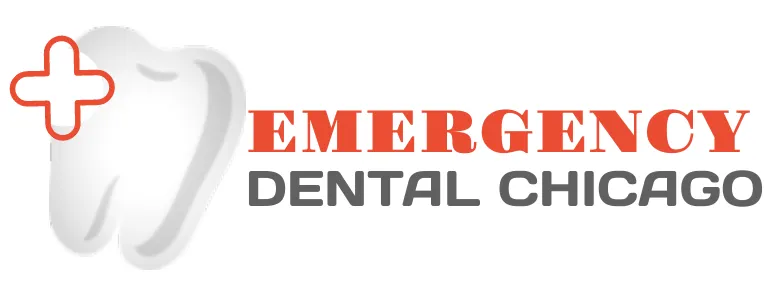Severe Toothache Relief in Chicago
Get fast relief and expert treatment for severe tooth pain. Don’t endure another sleepless night—seek professional emergency dental care now.
What Severe Tooth Pain Really Means and When to See a Dentist
A severe toothache isn't just a minor inconvenience—it’s often a sign of a serious underlying dental issue that requires immediate attention. Pain can range from sharp and stabbing to deep and throbbing, and it may be constant or triggered by chewing, temperature changes, or even touch.
Throbbing Tooth Pain
7–9/10
A deep, pulsating ache often signals tooth infection or abscess. This type of pain may feel worse when lying down or after eating.
Throbbing Tooth Pain
7–9/10
A deep, pulsating ache often signals tooth infection or abscess. This type of pain may feel worse when lying down or after eating.
Sharp, Shooting Pain
6–8/10
This sudden, intense pain usually occurs when chewing or drinking something hot or cold. Often linked to cracked teeth, exposed nerves, or advanced decay
Sensitivity to Hot or Cold
4–7/10
While mild sensitivity is common, lingering sensitivity after temperature changes may indicate worn enamel, receding gums, or dentin exposure.
When a Toothache Becomes a Medical Emergency: What You Need to Know
A mild toothache can often wait for a routine dental visit—but some toothaches are much more than a temporary annoyance. In fact, certain types of tooth pain can signal a serious dental emergency or even a life-threatening infection. Knowing when to seek emergency dental care could protect your health and save your tooth.
Severe, Unrelenting Pain: Pain that’s sharp, throbbing, or constant, especially if it disrupts sleep or daily activities, can be a sign of dental abscess, exposed tooth nerve, advanced tooth decay, and impacted tooth or trauma.
Swelling in the Face or Jaw: Swelling around the cheek, jaw, or neck may indicate a spreading infection, which could potentially compromise your airway or bloodstream. This requires immediate treatment.
Fever or Chills: A toothache accompanied by fever, chills, or fatigue may point to a systemic infection—one that’s moved beyond the tooth and into your body.
Pus, Bad Taste, or Foul Odor: A bad taste in your mouth, drainage of pus, or strong odor could be a sign of an abscess or gum infection. Delaying care increases the risk of permanent damage or tooth loss.
Common Causes of Severe Toothache
A severe toothache is often a sign that something more serious is happening beneath the surface. Understanding the possible causes can help you recognize when it's time to seek professional dental care.
Dental Abscess
A bacterial infection at the root of a tooth or in the surrounding gums. Often causes intense, throbbing pain, swelling, fever, and sometimes pus. This is a true dental emergency.
Advanced Tooth Decay
Untreated cavities can reach the inner pulp of the tooth, exposing nerves and causing sharp or deep pain, especially when chewing or exposed to hot/cold temperatures.
Cracked or Fractured Tooth
A break in the tooth can expose sensitive inner layers, leading to sharp pain, especially when biting down or eating.
Gum Disease (Periodontitis)
Infections in the gums and supporting tissues can cause pain, inflammation, and even tooth loosening or loss if left untreated.
Impacted Wisdom Teeth
When wisdom teeth fail to erupt properly, they can press against nearby teeth or become infected, causing jaw pain, swelling, and discomfort.
Tooth Sensitivity or Enamel Erosion
While less severe, exposed dentin from worn enamel can cause sharp pain in response to temperature changes or acidic foods.
What to Do While Waiting for Dental Treatment
If you're experiencing a dental emergency, it's important to stay calm and take steps to protect your oral health until you can be seen.
Stay calm and avoid panic to prevent further injury.
Rinse your mouth with warm salt water to keep the area clean.
Apply a cold compress to the outside of your cheek to reduce swelling.
Take over-the-counter pain relievers (avoid aspirin directly on gums).
Keep a knocked-out tooth moist in milk or saliva—do not touch the root.
Use dental wax or sugar-free gum to cover lost fillings or crowns temporarily.
Avoid eating on the affected side to prevent worsening the issue.
Call our 24/7 emergency dental team in Sacramento for immediate help.

Our Process Made It Easy
At Sacramento Emergency Dental, we follow a simple, effective process to relieve your pain fast:
Initial Assessment
We listen to your symptoms and perform a quick, focused exam.
Digital Diagnostics
X-rays or scans help us identify the exact cause of pain.
Immediate Pain Relief
Same-day procedures such as root canals, extractions, or other treatments to permanently resolve the source of your pain.
Toothache or Trauma? Don’t Delay—Get Emergency Help Now
Don’t let a severe toothache ruin your day—get fast, expert relief in Chicago now! Call our 24/7 emergency dental team for immediate, same-day care.
Open 24 Hours • Same-day Appointments • Professional Emergency Solutions
Emergency Dental Clinics Of Chicago
Providing 24/7 immediate dental care to Chicago neighborhood.
24/7 Emergency Support
(877) 462-0628
Contact us for any of your inquiries regarding emergency dental.
© 22025 Emergency Dental Clinics Of Chicago. All rights reserved.
